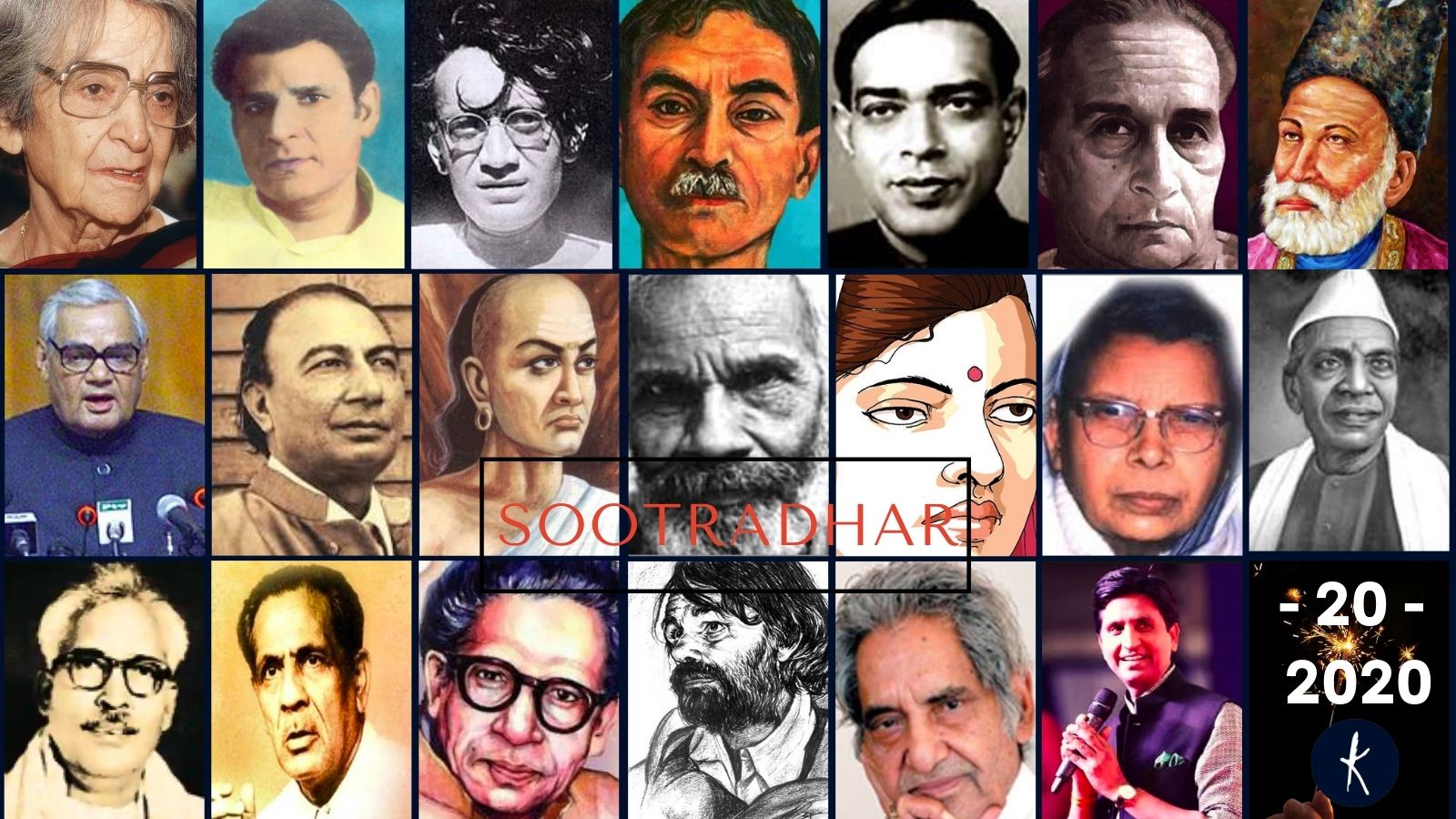Amrita Pritam
अमृता प्रीतम | Amrita Pritam; About this soundlisten (help·info); 31 August 1919 – 31 October 2005) was an Indian novelist, essayist and poet, who wrote in Punjabi and Hindi. She is considered the first prominent female Punjabi poet, novelist, essayist and the leading 20th-century poet of the Punjabi language, who is equally loved on both sides of the India–Pakistan border. With a career spanning over six decades, she produced over 100 books of poetry, fiction, biographies, essays, a collection of Punjabi folk songs and an autobiography that were all translated into several Indian and foreign languages.
She is best remembered for her poignant poem, Ajj aakhaan Waris Shah nu (Today I invoke Waris Shah – "Ode to Waris Shah"), an elegy to the 18th-century Punjabi poet, an expression of her anguish over massacres during the partition of India. As a novelist, her most noted work was Pinjar ("The Skeleton", 1950), in which she created her memorable character, Puro, an epitome of violence against women, loss of humanity and ultimate surrender to existential fate; the novel was made into an award-winning film, Pinjar (2003).
When India was partitioned into the independent states of India and Pakistan in 1947, she migrated from Lahore, to India, though she remained equally popular in Pakistan throughout her life, as compared to her contemporaries like Mohan Singh and Shiv Kumar Batalvi.
Known as the most important voice for the women in Punjabi literature, in 1956, she became the first woman to win the Sahitya Akademi Award for her magnum opus, a long poem, Sunehade (Messages), later she received the Bharatiya Jnanpith, one of India's highest literary awards, in 1982 for Kagaz Te Canvas ("The Paper and the Canvas"). The Padma Shri came her way in 1969 and finally, Padma Vibhushan, India's second highest civilian award, in 2004, and in the same year she was honoured with India's highest literary award, given by the Sahitya Akademi (India's Academy of Letters), the Sahitya Akademi Fellowship given to the "immortals of literature" for lifetime achievement. she wrote her poems mostly for the partition
Bibliography In her career spanning over six decades, she penned 28 novels, 18 anthologies of prose, five short stories and 16 miscellaneous prose volumes. Novel Pinjar Doctor Dev Kore Kagaz, Unchas Din Dharti, Sagar aur Seepian Rang ka Patta Dilli ki Galiyan Terahwan Suraj Yaatri Jilavatan (1968) Hardatt Ka Zindaginama Autobiography Black Rose (1968) Rasidi Ticket (1976) Shadows of Words (2004) Short stories Kahaniyan jo Kahaniyan Nahi Kahaniyon ke Angan mein Stench of Kerosene Poetry anthologies Amrit Lehran (Immortal Waves)(1936) Jiunda Jiwan (The Exuberant Life) (1939) Trel Dhote Phul (1942) O Gitan Valia (1942) Badlam De Laali (1943) Sanjh de laali (1943) Lok Peera (The People's Anguish) (1944) Pathar Geetey (The Pebbles) (1946) Punjab Di Aawaaz (1952) Sunehade (Messages) (1955) – Sahitya Akademi Award Ashoka Cheti (1957) Kasturi (1957) Nagmani (1964) Ik Si Anita (1964) Chak Nambar Chatti (1964) Uninja Din (49 Days) (1979) Kagaz Te Kanvas (1981)- Bhartiya Jnanpith Chuni Huyee Kavitayen Ek Baat Literary journal Nagmani, poetry monthly

